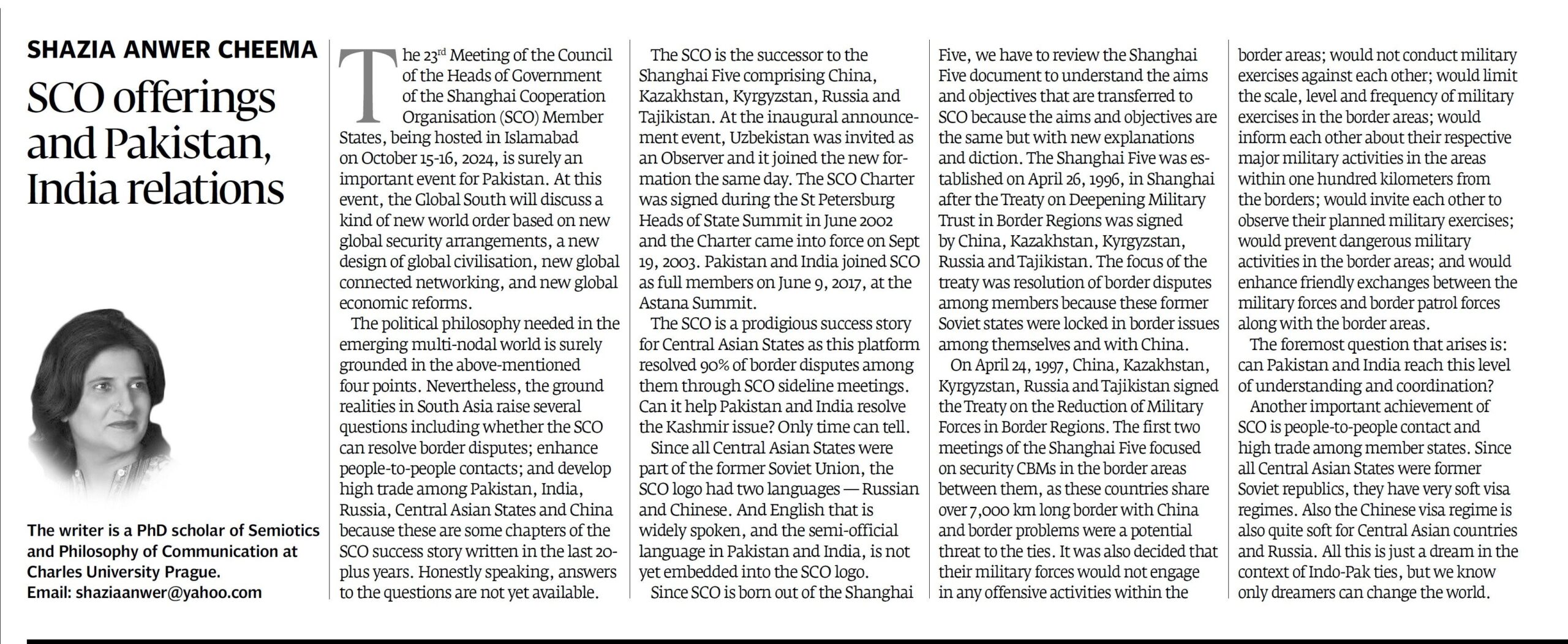Monitoring Desk: The 23rd Meeting of the Council of the Heads of Government of the Shanghai Cooperation Organisation (SCO) Member States, which will be hosted in Islamabad on October 15-16, 2024, is surely an important event for Pakistan. The ground realities in South Asia raise several questions including whether the SCO can resolve border disputes, enhance people-to-people contacts, and develop high trade between Pakistan and India or SCO offers only dreams to over 1.5 billion populations of India and Pakistan.
This question was asked in an article titled ‘SCO offerings and Pakistan, India relations’ published in Express Tribune, written by Shazia Anwer Cheema.
She believes the SCO is a success story for countries of Central Asia that resolved 90 percent of border disputes through sideline meetings during SCO forums but there is no hope that India and Pakistan will ever resolve the Kashmir issue at their side-line meeting.
She indicated that SCO was born out of the ‘Shanghai Five’ and its objectives and aims are the same as the Shanghai Five that helped to resolve border disputes among members because states of former USSR Kazakhstan, Kyrgyzstan, Russia, and Tajikistan had several border issues, resulting in border tensions and these states also had border issues with China.
“On April 24, 1997, China, Kazakhstan, Kyrgyzstan, Russia, and Tajikistan signed the Treaty on the Reduction of Military Forces in Border Regions. The first two meetings of the Shanghai Five focused on security confidence-building measures in the border areas between them as China and these countries share borders of over 7,000 kilometers in length and border problems were a potential threat to the relations among member states. It was also decided that their military forces would not engage in any offensive activities within the border areas; would not conduct military exercises against each other; would limit the scale, level, and frequency of military exercises in the border areas; would inform each other about their respective major military activities in the areas within one hundred kilometers from the borders; would invite each other to observe their planned military exercises; would prevent dangerous military activities in the border areas; and that they would enhance friendly exchanges between the military forces and border patrol forces along with the border areas. The foremost question is can Pakistan and India reach this level of understanding and coordination?’, she asked.

She also raised the issue of people-to-people contact and high trade among member states. Since all Central Asian States were former republics of the former Soviet Union, consequently they have very soft visa regimes and the Chinese visa regime is also quite soft for Central Asian countries and Russia. She believes that these points are just a dream if we talk about Pakistan-India relationships but we know only dreamers change the world”.
